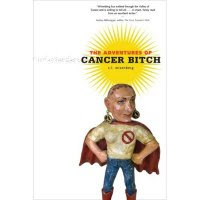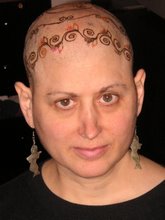
[Info on image here.
It's official. Today's the federally-designated day to be aware of breast cancer metastasis. You could argue that there are two kinds of cancer, the oh-it's-gone/it's-gonna-be-gone, and oh-it's-never-gonna-be-gone. Metastasis, of course, is the latter. Stage 4, out of four stages (not out of 10, as Brian Fies writes in the graphic memoir
Mom's [Lung]
Cancer. That's why Mom wasn't upset--at first--to hear that she was at Stage 4.)
For people with Stage 4, cancer is not a wake-up call that you can hang up on. It's a constant companion, the stalker that you can't keep out with an order of protection. It doesn't wake you up. It puts you to sleep, forever.
Stage 4 is what we all fear, and perhaps that nervousness feeds into the frantic pom-pon pinkness of breast cancer awareness and all the pink swag that's available.
"We are definitely out of the pink spotlight," Ellen Moskowitz, president of the Metastatic Breast Cancer Network, told
Elaine Schattner of the Huff Post. "All the stories are about survivors, 'rah, rah,' who everyone applauds."
“I always wanted you to admire my fasting,” said the hunger artist [in Kafka's eponymous story]. “But we do admire it,” said the supervisor obligingly. “But you shouldn’t admire it,” said the hunger artist. “Well then, we don’t admire it,” said the supervisor, “but why shouldn’t we admire it?” “Because I had to fast. I can’t do anything else,” said the hunger artist. The analogy between those with "mets" and the hunger artist breaks down, so I won't pursue it further. But I think that we admire Stage 4s who get up and go, though it takes them, say, three hours to get out of bed and prepare for the day, which is filled with bone and other pain. But they do it because they can't do anything else. Except give up.















